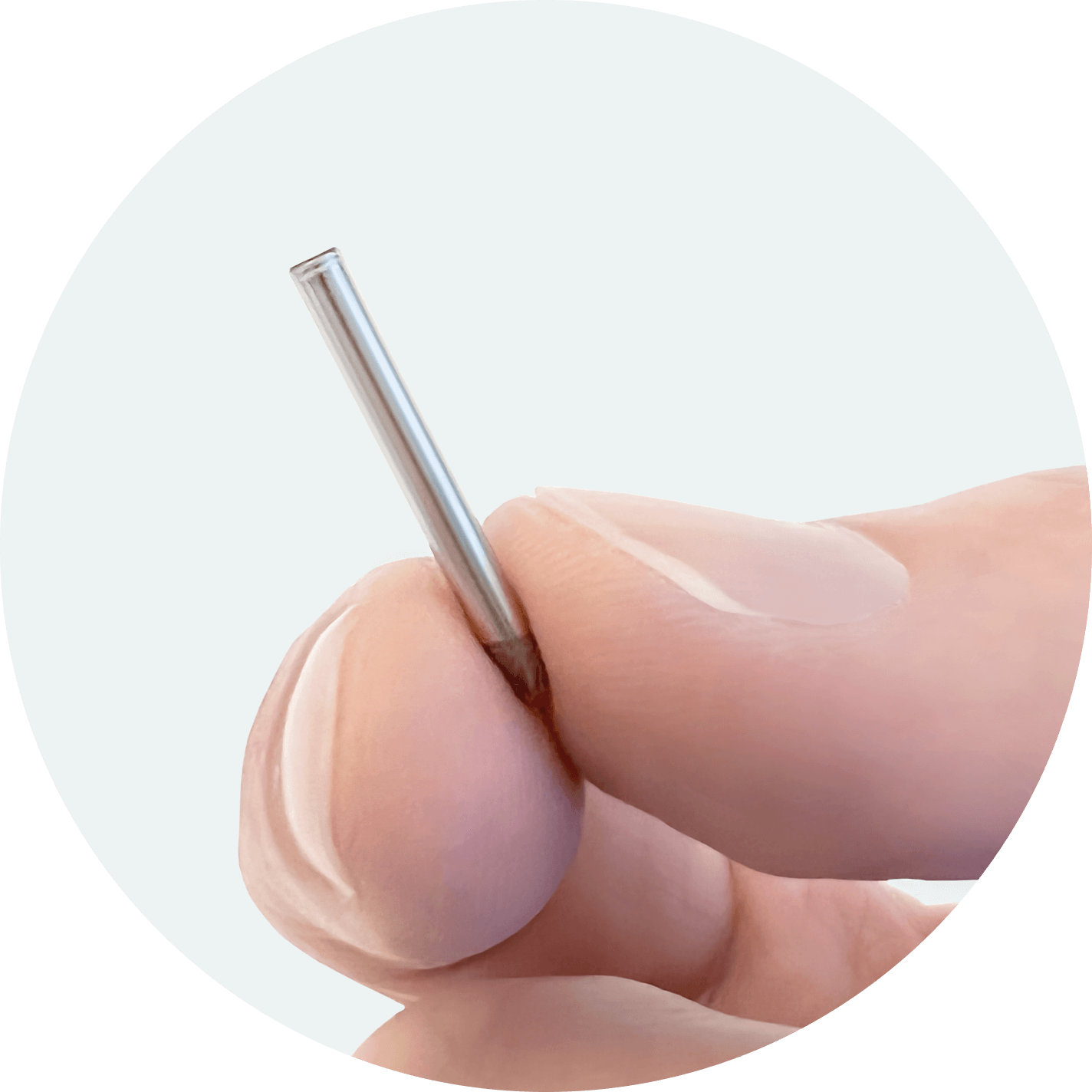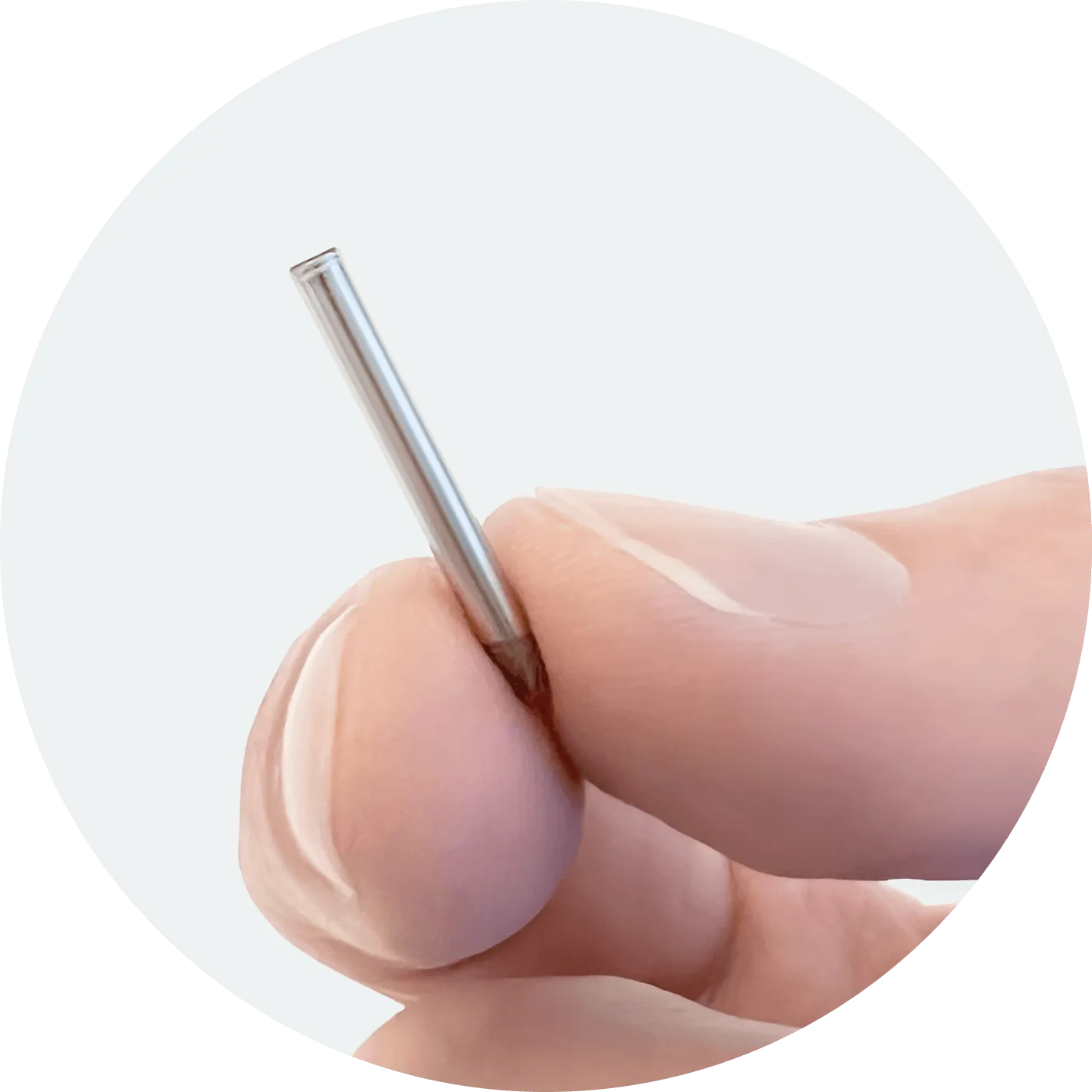
Revolutionizing the treatment of chronic disease.
Leveraging our NanoPortal™ technology, we are developing a portfolio of highly differentiated products comprised of miniature, sub-dermal drug implants.
Our Pipeline
Management
Semaglutide
Semaglutide
Management
Exenatide
Obesity
Exenatide
Management
Semaglutide
Semaglutide
Management
Exenatide
Obesity
Exenatide
Management
Semaglutide
Semaglutide
Management
Exenatide
Obesity
Exenatide
**Estimated Market Sizes where Vivani products would compete, if approved. Does not represent future sales or revenue estimates of Vivani pipeline products.
TD Cowen estimates $139B in GLP-1 sales by 2030. We assume >$60B for Obesity/Chronic Weight Management and >$60B for Type 2 Diabetes by 2030.
***In Partnership with Okava Pharmaceuticals, Inc. Market size estimate based on Okava internal analysis.
NPM-139 (Semaglutide Implant): Our Lead Program
A miniature, GLP-1 receptor agonist implant designed to address medication non-adherence and improve tolerability.
NPM-139, leveraging our NanoPortal™ technology, is designed to provide steady, long-term therapeutic delivery of semaglutide for at least six months.
By assuring medication adherence, NPM-139 may free patients with obesity from burdens associated with oral and injectable medications, as well as provide confidence to physicians, caregivers and loved ones that patients are receiving the intended therapeutic benefits from their medicine.

Target
Under investigation for chronic weight management/obesity.
Although the GLP-1 receptor agonist class has quickly outpaced previous anti-obesity medications due to superior efficacy and tolerability, medication non-adherence continues to affect an alarming number of patients – approximately 50%, including those taking daily pills. In fact, non-adherence may also contribute to the gap in real-world effectiveness compared to the efficacy reported from randomized, controlled, clinical trials.
Development
A Successful First-in-Human Clinical Study of NanoPortal Technology.
LIBERATE-1, the First-in-Human Trial with our NanoPortal technology met all study objectives and paves the way for further advancement of our emerging, miniature drug implant portfolio. New preclinical data with a novel semaglutide implant showing ~ 20% weight loss with a single dose over six months supports priority advancement of the semaglutide implant toward clinical-stage development in 2026.
NPM-133 Overview
A miniature, GLP-1 receptor agonist implant designed for patients living with type 2 diabetes.
Built with our NanoPortal™ technology, NPM-133 is designed to provide steady, long-term therapeutic delivery of semaglutide for at least six months.
For patients with type 2 diabetes, the health risks associated with missed doses of prescribed medications can be severe. NPM-133, currently in development, offers the potential for these patients to receive the full therapeutic benefits of semaglutide treatment over six-months or more without interruption, providing convenience and peace-of-mind.
